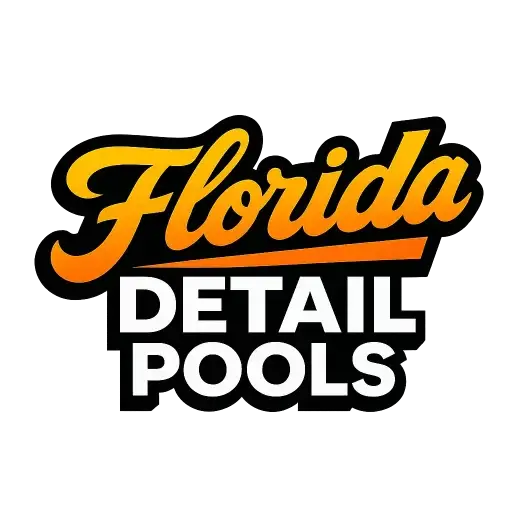
Living in a high-humidity region like Charlotte County, Florida, means your pool is exposed to constant moisture, warm air, and frequent rain. While these conditions make for a perfect swim season, they also challenge your pool heater’s efficiency and longevity. If you’re considering a new heater or want to upgrade, choosing the right model for humid weather can save you energy, maintenance costs, and frustration.
Here’s a guide to the best pool heaters for high-humidity areas — and how to keep them running efficiently all year.
Why Humidity Affects Pool Heater Performance
Humidity impacts both evaporation rates and air exchange efficiency, which are crucial to how a heater works. High moisture in the air can:
- Reduce heat transfer efficiency in air-source systems.
- Increase corrosion risks, especially on electrical components and coils.
- Cause condensation buildup that shortens equipment life.
Pro Tip: Always look for heaters designed with corrosion-resistant materials and sealed electronics if you live near coastal or humid environments.
1. Heat Pumps: The Best Choice for Humid Florida Climates
Why They Work Best:
Heat pumps thrive in warm, humid air — exactly what Florida provides. They draw heat from the air and transfer it to the pool water, making them energy-efficient and eco-friendly.
Advantages:
- Works efficiently in temperatures above 50°F.
- Long lifespan (10–15 years with proper care).
- Lower monthly energy cost compared to gas.
- Quiet and ideal for residential neighborhoods.
Recommended Models:
- Hayward HeatPro® – Titanium heat exchanger for corrosion resistance.
- Pentair UltraTemp® – Smart temperature controls and humidity protection.
- AquaCal® HeatWave SuperQuiet® – Built specifically for coastal humidity.
For installations in Port Charlotte or Punta Gorda, look for models with UV-protected housing and sealed fan motors to handle salty air.
2. Gas Heaters: Powerful but Require More Maintenance
Gas heaters (natural gas or propane) are known for rapid heating, making them ideal for spas or short-term heating needs. However, they’re not as efficient in humid or rainy climates.
Pros:
- Heats water quickly, regardless of weather.
- Great for occasional use or large pools.
Cons:
- Metal components may corrode in humid air.
- Requires regular vent cleaning to prevent rust.
- Higher operational costs.
Best Options:
- Raypak Digital Gas Heater – Copper-nickel heat exchanger resists corrosion.
- Pentair MasterTemp® 125 – Compact, efficient, and suitable for small pools.
Maintenance Tip: Use a vent cover or heater shelter to protect gas models from Florida’s frequent rain and coastal air.
3. Solar Pool Heaters: Eco-Friendly and Perfect for Sunny, Humid Regions
Solar heaters perform exceptionally well in Florida’s sunshine, using solar panels to transfer heat from the sun into your pool water.
Advantages:
- Zero fuel cost after installation.
- Excellent for year-round warm climates.
- Works silently and lasts up to 20 years.
Challenges:
- Slower heating rate compared to gas.
- Requires sufficient roof or ground space.
- Dependent on direct sunlight (less effective during long cloudy weeks).
Top Choices:
- FAFCO® Solar Bear – Durable, UV-resistant solar panels.
- Heliocol® Solar Heating System – Resistant to humidity and wind damage.
Combine solar panels with a heat pump backup system for the most efficient setup in humid regions like North Port or Englewood.
4. Hybrid Systems: The Best of Both Worlds
Hybrid heaters combine heat pump efficiency with gas power backup, allowing you to maintain stable pool temperatures even during cool or rainy weather.
Benefits:
- Smart auto-switch between gas and electric heating.
- Reliable performance in all weather conditions.
- Long-term energy savings with quick-heat flexibility.
Ideal For:
Homeowners who use their pool year-round and want consistent temperatures without sky-high bills.
Example:
- Jandy VersaTemp™ Hybrid – Designed for humid coastal areas with weatherproof controls.
5. Features to Look for in Humid Climates
When shopping for a pool heater in humid environments like Florida, make sure it includes:
- Corrosion-resistant titanium or polymer heat exchangers
- Sealed electronics and weatherproof housing
- UV and salt-resistant exterior coating
- Condensation drainage system
- Smart sensors for humidity control
Maintenance Tips to Extend Heater Life
Even the best heater can fail early without proper care in humid conditions. Follow these maintenance steps:
- Keep the area dry – Avoid placing heaters near sprinklers or under roof drips.
- Clean coils and filters monthly – Remove salt, leaves, and dust buildup.
- Check for corrosion – Inspect wiring, screws, and metal surfaces regularly.
- Flush the heat exchanger – Prevent scale and mineral deposits.
- Cover the unit during storms – Protect it from direct rainfall and debris.
Regular servicing through trusted local professionals like Florida Detail helps ensure maximum efficiency and warranty coverage.
Conclusion: Choose Smart for Florida Humidity
For homeowners in Charlotte County and nearby areas, electric heat pumps or solar-assisted systems deliver the best combination of efficiency, durability, and comfort. Avoid cheap models that rust or lose efficiency in damp air — investing in humidity-ready equipment pays off through lower bills and longer life.
If you’re ready to upgrade your pool heating system, visit Florida Detail to connect with verified local experts who specialize in high-humidity installations across Port Charlotte, Punta Gorda, and North Port.
